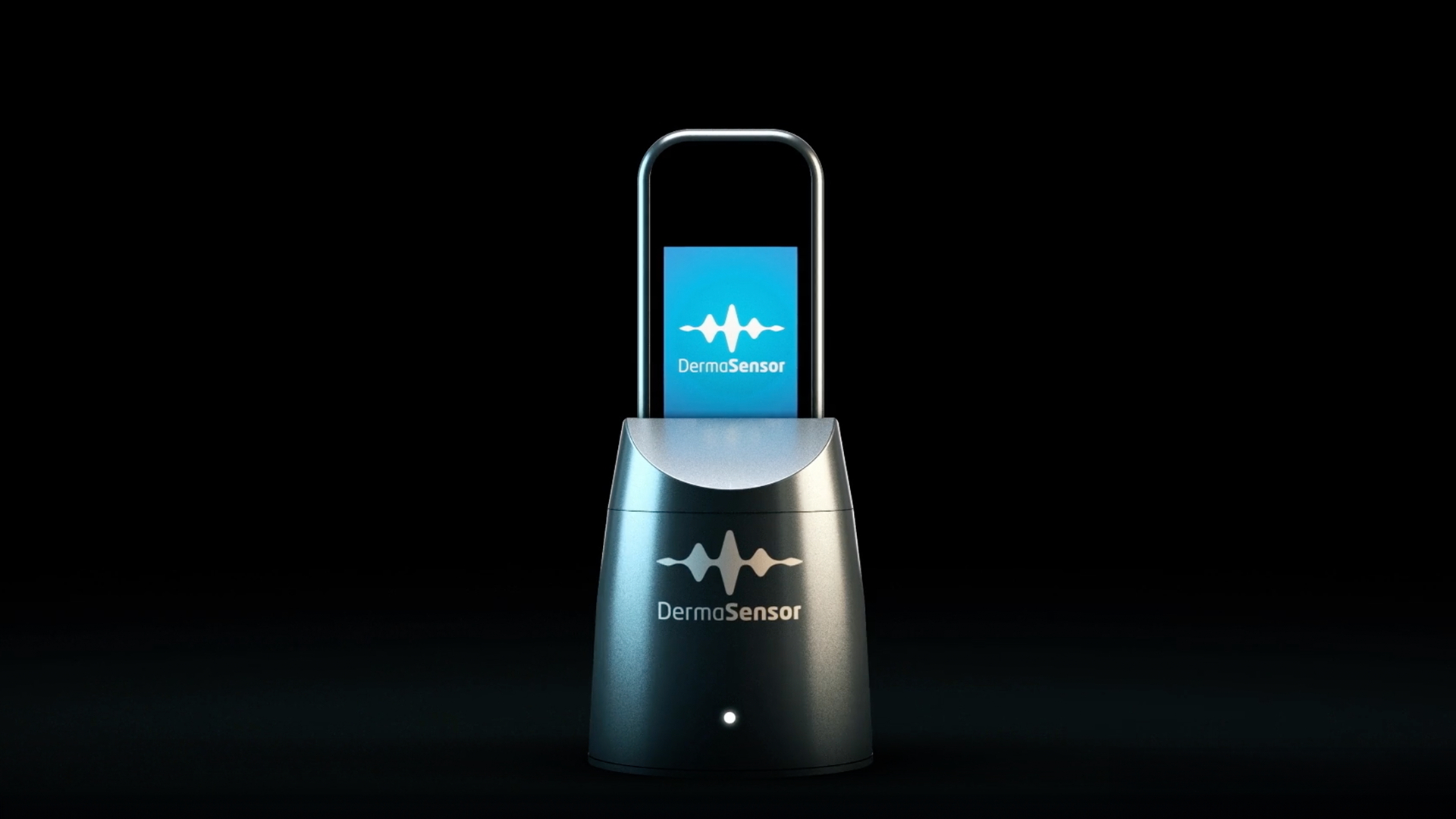

Miami-based DermaSensor announced on Wednesday that the U.S. Food and Drug Administration had cleared its hand-held device that uses artificial intelligence to detect skin cancer. “For the first time, the 300,000 primary care physicians in the U.S. can now be equipped to provide quantitative, point-of-care testing for all types of skin cancer. Better identifying skin cancer in a primary care setting is designed to accelerate patient access to necessary care,” said the company in a release.
Skin cancer is typically identified through dermatoscopy, a procedure in which a medical professional examines the skin for signs of cancer using a specialized magnifying glass or through a visual examination.
DermaSensor uses Elastic Scattering Spectroscopy (ESS), a process which evaluates how photons scatter when reflected off of different cellular structures. Malignant lesions have been reported to have different cellular and sub-cellular structures than benign lesions, scattering light differently.
Quick Notes on the Technology:
- DermaSensor’s tip reflects and records quick bursts of light off the lesion’s cellular and sub-cellular content.
- The light is analyzed by the built-in computer to provide information to help physicians assess skin lesions (including melanomas, squamous cell carcinomas, and basal cell carcinomas) to aid in a referral decision.
- By examining the difference in light scattering, DermaSensor determines if the skin lesion is “Investigate Further” or “Monitor,” an immediate output.
“We are entering the golden age of predictive and generative artificial intelligence in healthcare, and these capabilities are being paired with novel types of technology, like spectroscopy and genetic sequencing, to optimize disease detection and care,” said Cody Simmons, co-founder and Chief Executive Officer of DermaSensor. “Equipping PCPs, the most abundant clinicians in the country, to better evaluate the most common cancer in the country has been a major, long-standing unmet need in medicine. While dozens of companies have attempted to address this problem in recent decades, we are honored to be the first device cleared by the FDA that provides PCPs with an automated tool for evaluation of suspicious lesions.”
The FDA clearance is based on a study which showed that the device had a 96% sensitivity in detecting skin cancers. A negative result through the device had a 97% chance of being benign, according to the company.
“Achieving this medical milestone is a testament to the 12 years and tens of millions of dollars our company has invested in research and development to bring this powerful technology to market,” said Dr. Maurice Ferre, co-founder and chairman of DermaSensor. “We are incredibly grateful to the FDA for their collaboration and dedication to this area starting with our first FDA pre-submission meeting in 2016. Having begun patient enrollment in our FDA pivotal study in mid-2020, we are now ecstatic to have clearance of our FDA-Breakthrough Designated De Novo submission.”

